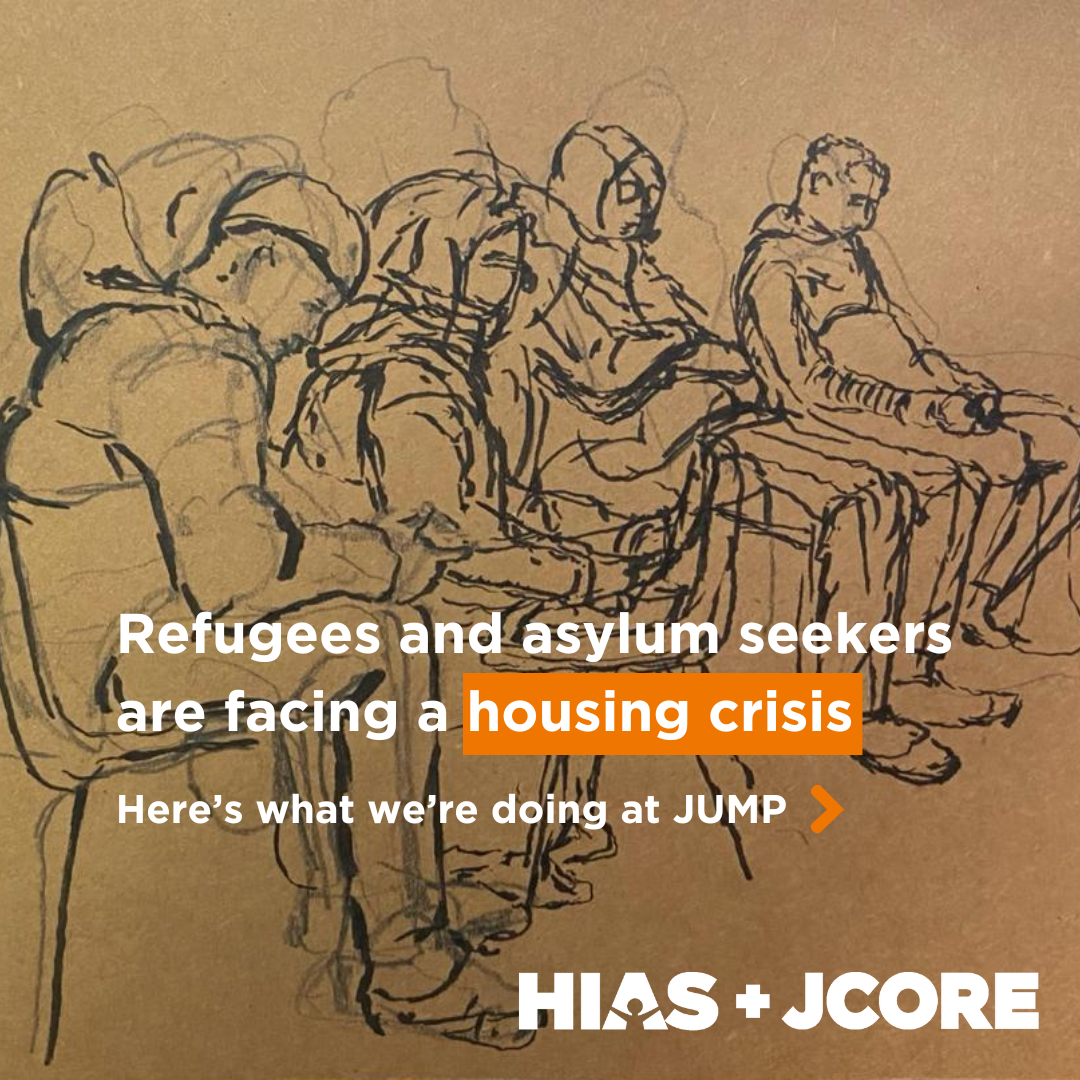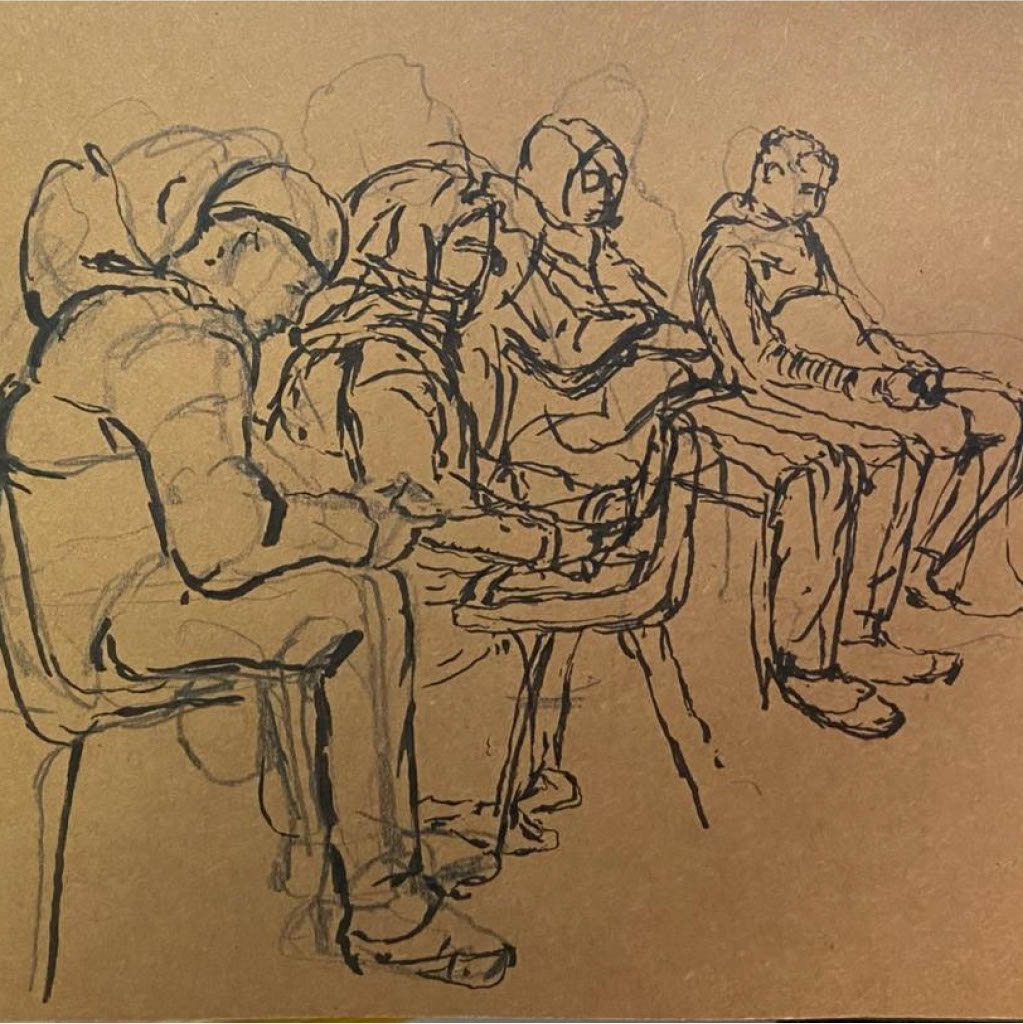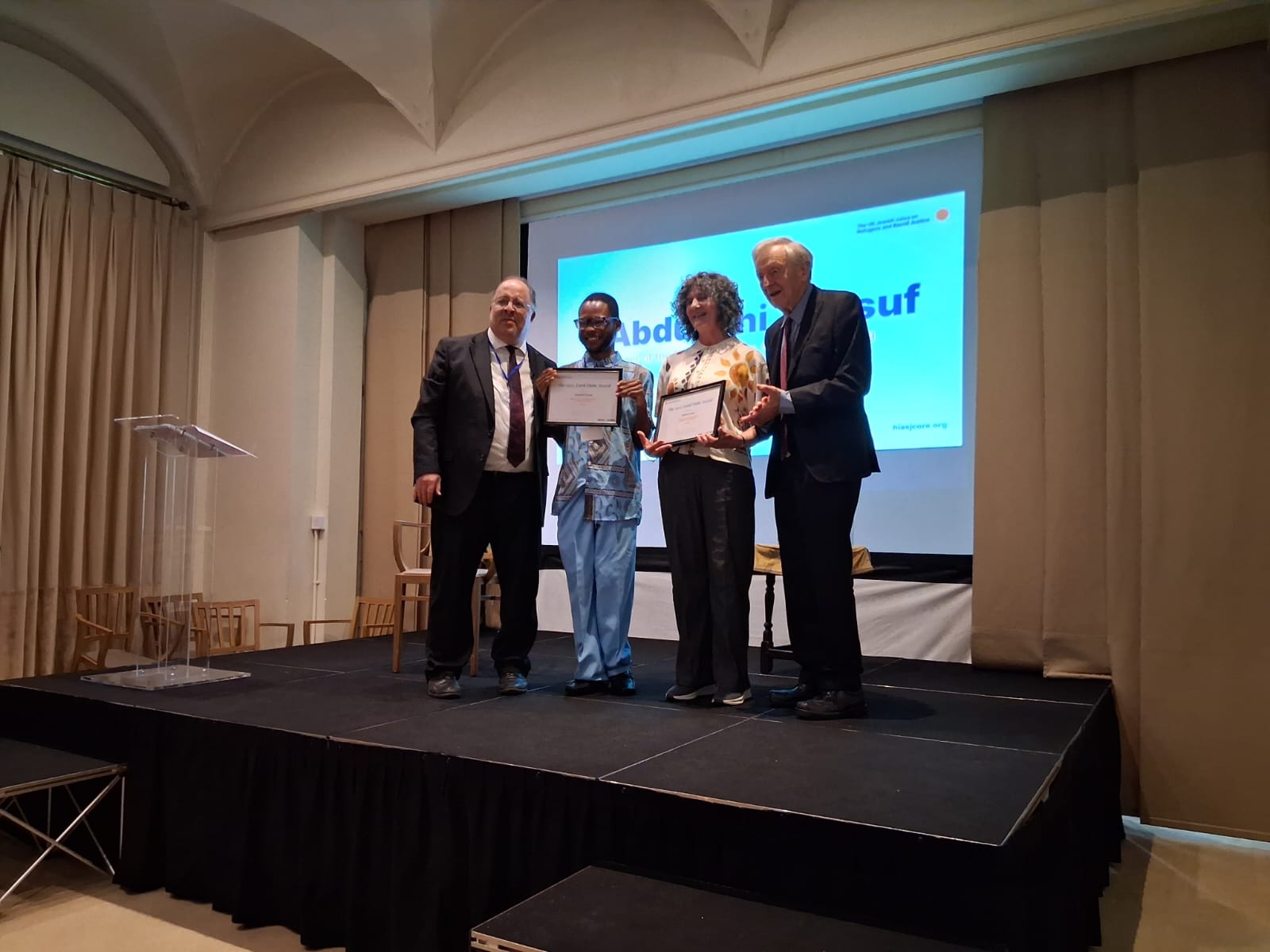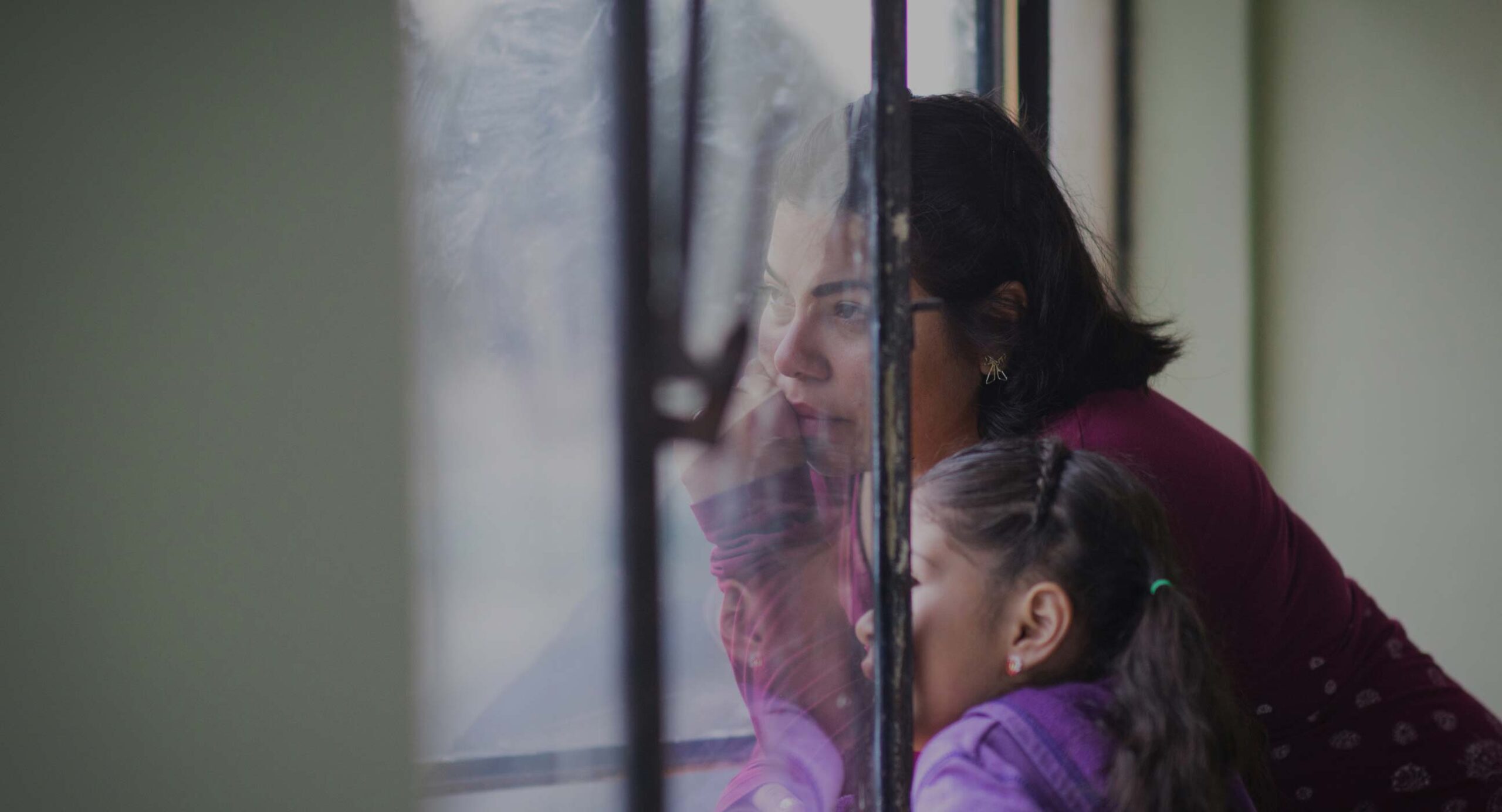
In October 2023, the number of refugees facing homelessness in London increased by 39% – in just one month.
The impact has been felt across the refugee sector. At JUMP, our project staff and volunteers have been undertaking extensive work to prevent the young people we work with being forced into homelessness.
Andrew’s experience
In December 2023, JUMP befriender Andrew Cooper accompanied a young person taking part in the project to Brent Council to help him register as homeless. They arrived at the council office at 9am and were made to wait until 4:45pm, before getting the outcome they needed. Whilst waiting Andrew sketched out what he saw around him in the waiting room.
Andrew later recounted:
“We arrived at 9:00 and were given a ticket with a number on it. After giving details to the receptionist who was kind, but made it clear she was the receptionist and not the person who would deal with the case, we were asked to wait, till someone could see us. We thought it may be a couple of hours but two hours went past then three, four, five then six… we took it in turns to eat chips outside in case we missed the ticket number being called. It was apparent that some people had been there the day before, not a good sign I thought. Some were turned away for not having the right documents. There were some young children and older people, one guy looked in his 70’s at least, waiting in an emergency homeless waiting room should not be something they should be having to do. The system demands that a person suffering the trauma of homelessness must have all the documents that prove their last address, and quite a high degree of literacy to fill in and read the forms. And the ability to sit and wait, it was eight hours before (young person) got seen.”
Whilst this young person was offered temporary accommodation by Brent council, he was supported by a solicitor and many other professionals. There are countless other individuals who remain waiting for days, weeks, and months on end for this response.
What’s driving this crisis?
Current Home Office policy gives people just 28 days to vacate their accommodation after being granted refugee status. That’s 28 days to find somewhere to live, apply for Universal Credit, and register for a bank account. For many people, this means navigating complex bureaucratic systems, in a language they may not be fluent in. Even once you’re deemed eligible for Universal Credit, there’s still a month’s wait for the first statement – and access to housing benefits.
As a result, even if you can complete all of the above steps in 28 days, you might still be forced into homelessness as you’re unable to access benefits to help you pay rent. As many asylum seekers are unable to work until they’re granted refugee status, Universal Credit and housing benefit is often the only way to fund this move.
What’s JUMP done to help?
At JUMP, we’ve supported a number of young people through this process. Our team has made homelessness applications to councils and connected young people with solicitors, ensuring that they can take this next step. At times, when securing housing has not been possible within 28 days, we’ve also funded emergency interim accommodation for young people.
The situation in 2024
We’re now facing a new hurdle. While we’ve helped prevent the risk of homelessness, the young people we work with are now being moved into accommodations without furniture and other basic essentials. Imagine trying to settle into a new environment – but not having items like plates, pans, cutlery, and bed sheets.
Could you help? We’re seeking donations of items – and have a full shopping list available. Please be in touch if you could help provide bedding, crockery, cutlery or portable heaters, which are all urgently needed by young people we work with.
If you’d like to see more of Andrew Cooper’s work, please visit https://andrewcooper-unseen.org/

JUMP befriender Andrew Cooper’s sketch, from the waiting room at Brent Council



